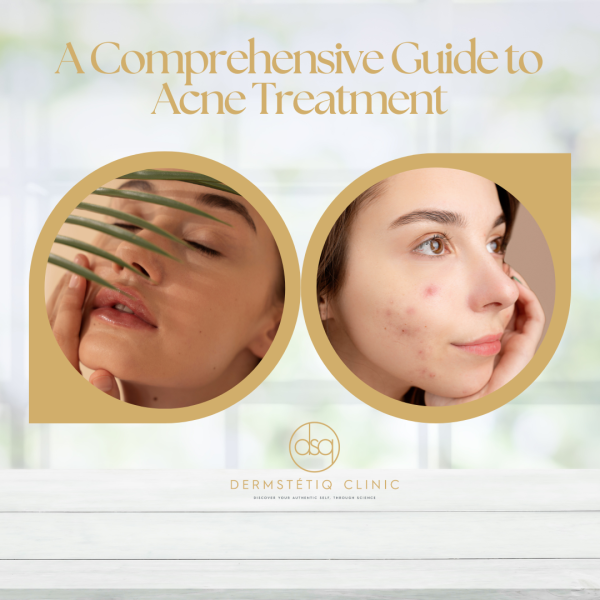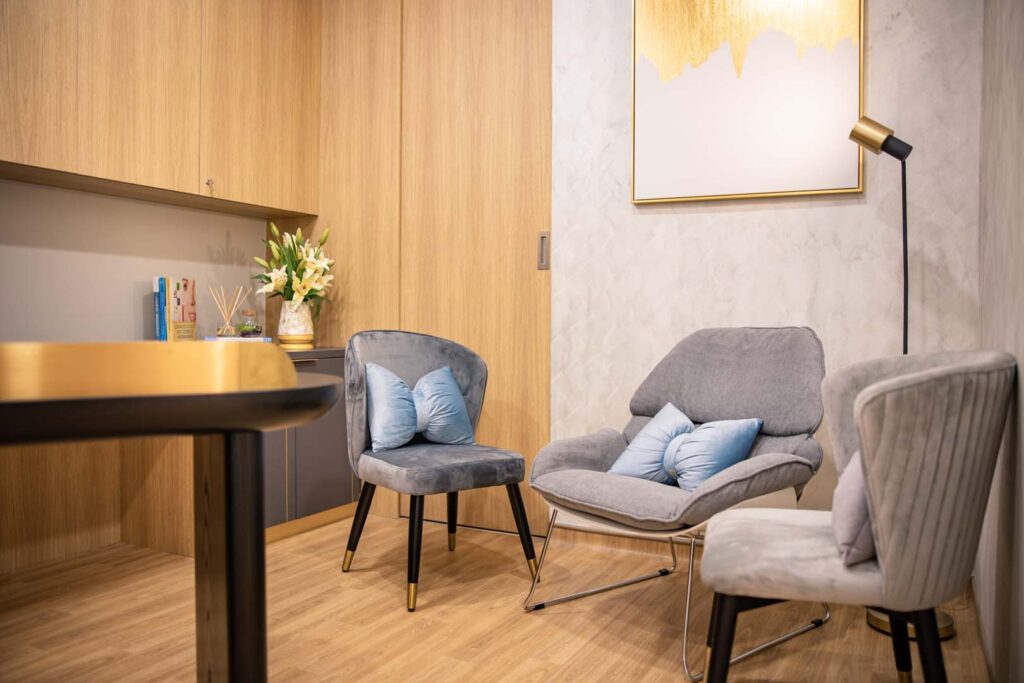
Acne. The mere mention of the word can send shivers down the spine of many people Whether you’re a teenager grappling with hormonal changes or an adult experiencing unexpected breakouts, acne can be a frustrating and confidence-shattering skin condition. But here’s the good news: you’re not alone, and there are numerous effective treatment options available.
In this comprehensive guide, we’ll explore various approaches to treating acne, from simple lifestyle changes to advanced medical treatments. We’ll also touch on related skin concerns like pigmentation, dry and sensitive skin, rosacea, and enlarged pores. So, let’s embark on this journey to clearer, healthier skin together!
Before diving into treatment options, it’s crucial to understand what acne is and what causes it. Acne occurs when hair follicles become clogged with oil and dead skin cells. This can result in various types of blemishes, including:
Factors that can contribute to acne include:
Understanding these factors can help you make informed decisions about your acne treatment approach.
What you put into your body can significantly impact your skin health. While the relationship between diet and acne is complex and still being studied, some dietary changes may help improve your skin:
Stress can wreak havoc on your skin by triggering hormonal changes and inflammation. Incorporate stress-reducing activities into your routine:
Simple changes to your daily habits can make a big difference:
A consistent skincare routine is crucial for managing acne and maintaining overall skin health. Here’s a basic routine to consider:
Use a gentle, non-comedogenic cleanser suitable for your skin type. Avoid harsh scrubs that can irritate acne-prone skin.
A gentle, alcohol-free toner can help balance your skin’s pH and remove any remaining impurities.
Apply acne-fighting ingredients like salicylic acid or benzoyl peroxide to target active breakouts.
Even oily, acne-prone skin needs hydration. Choose a light, oil-free moisturizer to keep your skin balanced.
Always finish with a broad-spectrum sunscreen to protect your skin from harmful UV rays, which can worsen acne and cause pigmentation.
When choosing skincare products, look for these acne-fighting ingredients:
This beta-hydroxy acid (BHA) penetrates pores to remove excess oil and dead skin cells.
Known for its antibacterial properties, benzoyl peroxide can help kill acne-causing bacteria.
Derivatives of vitamin A, retinoids can help unclog pores and promote cell turnover.
This form of vitamin B3 can help reduce inflammation and regulate oil production.
Ingredients like glycolic acid and lactic acid can exfoliate the skin’s surface, improving texture and reducing acne.
Remember: Always patch test new products and introduce them gradually into your routine to avoid irritation.
If lifestyle changes and over-the-counter products aren’t providing the results you desire, it may be time to consider medical treatments.
For moderate to severe acne, oral antibiotics can help reduce inflammation and kill acne-causing bacteria.
For women experiencing hormonal acne, birth control pills or anti-androgen medications may be prescribed.
Reserved for severe, cystic acne that hasn’t responded to other treatments, isotretinoin is a powerful oral medication that can provide long-lasting results.
Your Skin / Aesthetic Doctor may prescribe stronger versions of retinoids or combination products that aren’t available over the counter.
Chemical peels involve applying a solution to the skin to remove the top layers, unclogging pores and improving skin texture. They can be particularly effective for treating acne and reducing post-inflammatory hyperpigmentation.
Various laser treatments can target acne and its after-effects:
BBL uses light energy to reduce acne-causing bacteria and decrease oil production. It can also help with redness and pigmentation associated with acne.
Acne can often leave behind dark spots or hyperpigmentation. Treatment options include:
If your skin is dry or sensitive in addition to being acne-prone:
While often confused with acne, rosacea is a different condition that can cause redness, flushing, and bumps. Treatment may involve:
To minimize the appearance of large pores:
Remember, treating acne is often a journey, not a destination. It may take time and patience to find the right combination of treatments that work for your unique skin. Don’t be discouraged if you don’t see immediate results – consistency is key.
As you navigate your acne treatment journey, keep these tips in mind:
Acne can be a challenging skin condition to manage, but with the right approach, clearer skin is achievable. From simple lifestyle changes to advanced medical treatments, there are numerous options available to help you on your journey to healthier skin.
Remember, what works for one person may not work for another. Be patient with your skin, and don’t be afraid to try different approaches or seek professional help. Your perfect skincare routine is out there, waiting to be discovered.
Here’s to embracing your skin, acne and all, while working towards the clear, glowing complexion you deserve!
At Dermstétiq Clinic, Dr. Tan Hui Suan and her team are committed to providing personalised care and expert advice to address a wide range of dermatological concerns. Whether it’s acne, hyperpigmentation, premature aging, or other skin issues, their comprehensive approach ensures patients receive the best possible treatments tailored to their unique needs. By staying informed and proactive about skin health, patients can achieve and maintain beautiful, healthy skin.
DSQ Elite proudly stands as the official distributor of multiple world-renowned, scientifically-proven effective skincare, haircare, and weight loss products. Our journey began with a simple yet profound commitment: s to unlock the power of cutting-edge research and technology to create products that go beyond the surface, delving deep into the science of beauty.
Call us at +65-69800878 or submit the following form to make an appointment.

© Dermstetiq Clinic Pte Ltd. All Rights Reserved 2026